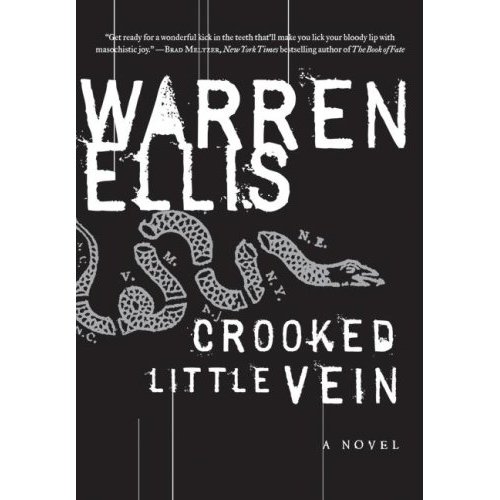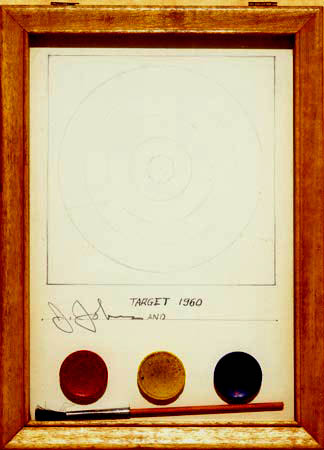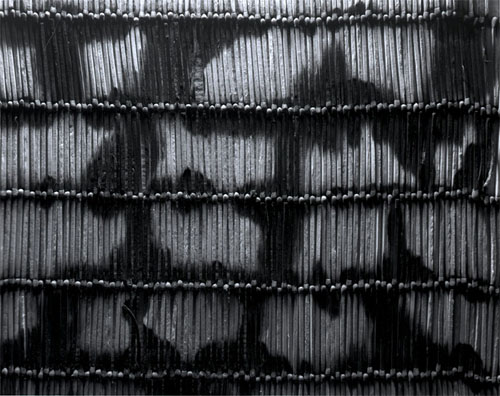Here’s a pic from my show, that I snapped with the cellphone the day I hung it.

Here’s a pic from my show, that I snapped with the cellphone the day I hung it.

…starts tomorrow. I’ll be in Ellsworth hanging it a good part of the day, I’m sure. i’ve been working all week getting paintings and collages ready to hang, and I’m about ready. It’s at the Hancock County Higher Education Center; come visit if you get a chance. The show runs from August 13-Sep 21, 2007.
Yesterday I participated in The Farnsworth Art Museum’s fourth annual Paint the Town event, where artists get together and go out and paint scenes of Rockland, and then the paintings get auctioned off that evening. Bids weren’t very brisk last night, but the event probably made about $10,000 for the museum, and both the paintings I did sold.
Pics to follow:

Rudy Rucker and Cory Doctorow have posted essays, recently, on their feelings about “mundane SF”.
Mundane Science Fiction is a sub-section of science fiction. Its founders include Geoff Ryman. It focuses on stories set on or near the Earth, with a believable use of technology and science as it exists at the time the story is written.
Rudy’s is here, and Cory’s is here.
Rudy has fundamental disagreements with the Mundanes:
Like me, the Mundanes would like to see SF as real literature. They feel that real literature mustn’t use fundamentally false scenarios….
Mundane SF is to be about picturing possible futures, drawing on such sober-sided Sunday magazine think-piece topics as “Disaster, innovation, climate change, virtual reality, understanding of our DNA, and biocomputers that evolve.”
I have so many objections!I don’t think SF is necessarily about predicting possible futures. I’ve always felt that SF is more like surrealism. The idea is to shock people into awareness. Show them how odd the world is. Whether or not you draw on realistic tropes is irrelevant. But my personal bent is always to try and make the science plausible….
I think it’s an interesting intellectual game to find valid scientific ways around the specific strictures suggested by Mundane SF….
He give some examples, including FTl travel, and alternate universes. Rudy isn’t totally against Mundane SF as an art form, he just thinks that that is not the major focus of SF.
Cory, on the other hand is an advocate for Mundane SF:
Of course, science fiction is a literature of the present. Many’s the science fiction writer who uses the future as a warped mirror for reflecting back the present day, angled to illustrate the hidden strangeness buried by our invisible assumptions: Orwell turned 1948 into Nineteen Eighty-Four. But even when the fictional future isn’t a parable about the present day, it is necessarily a creation of the present day, since it reflects the present day biases that infuse the author. Hence Asimov’s Foundation, a New Deal-esque project to think humanity out of its tribulations though social interventionism….
Or take the Starship Enterprise, with a transporter capable of constituting matter from digitally stored plans, and radios that can breach the speed of light.The non-futurismic version of NCC-1701 would be the size of a softball (or whatever the minimum size for a warp drive, transporter, and subspace radio would be). It would zip around the galaxy at FTL speeds under remote control. When it reached an interesting planet, it would beam a stored copy of a landing party onto the surface, and when their mission was over, it would beam them back into storage, annihilating their physical selves until they reached the next stopping point. If a member of the landing party were eaten by a green-skinned interspatial hippie or giant toga-wearing galactic tyrant, that member would be recovered from backup by the transporter beam. Hell, the entire landing party could consist of multiple copies of the most effective crewmember onboard: no redshirts, just a half-dozen instances of Kirk operating in clonal harmony….
He goes on with more on subjects like the Singularity (postulate by Vernor Vinge in 1986), and concludes that the future is incomprehensible to us, and we can only understand our own era, so that’s what SF should be about.
Two interesting essays, with some good arguments for both sides. I tend to fall into the side that Rudy Rucker’s on, because I feel that, while good science fiction speaks to the issues of the day (or era), it it also should show us what the world could be like, and to imagine (as best we can) the issues of the future.
A Half-Century Later, Art Of Jasper Johns Still Feels New
More on the new show, now at the Kuntsmuseum.
The artist, who was born in 1930, used an encaustic technique, mixing pigment and liquid wax to create surfaces at once transparent and compact in their composition. In this period Mr. Johns also started incorporating real objects into his paintings. Household cutlery, rulers and cups become an integral part of works like “Device,” “Souvenir 2” and “Zone.” He was one of the first artists to do this, but unlike those who followed him, such as Jeff Koons, he is more interested in the creative tension between the objects and art than in the mass culture represented by the objects themselves.
Mr. Johns’s work has foreshadowed trends and techniques, such as monochromatic canvases, two-dimensional objects and colors and shapes borrowed from advertising, that are still being explored a generation later by today’s contemporary art stars. The monochromatic paintings in the show — all green or all white targets — still astound after half a century with their originality.
This is pretty much the relevant quote, for me. The article is only four paragraphs long, and you need a subscription to see the whole thing unless you get there directly through google news (which is how I got there).
You don’t see much about Johns online, or in magazines (well not as much as in the 70’s and 80’s anyways), and I think he is one of the most important, and influential, of the modernists.
YouTube – Jasper Johns: An Allegory of Painting, 1955 – 1965
This is a tour through the “Allegory of Painting” show–at the Kunstmuseum right now.
c0woGV7eHyk
With the exhibition “Jasper Johns: An Allegory of Painting, 1955 – 1965?, the Kunstmuseum Basel presents Jasper Johns’ groundbreaking early work, beginning in the mid-1950s with such famous works as “Target with Four Faces”. Previously shown at the National Gallery of Art in Washington. June 1, 2007
I particularly like this little painting:

😀
gid5qVh1hQM&NR
Some of my favorite opening lines from novels:
These are the ones I can remember just offhand, the ones that sank their barbs into my brain, and landed me on their green shores. All books that I highly recommend, by the way. (I would also recommend other books, and do so, here and there, but this is about first lines not just great novels.)
What first lines have sucked you in; what ones do you remember the most? What first line made you pick up a book and not put it down.
Comments please.

Caleb Charland is a fine photographer, who happens to work with my wife. From: Aperture Foundation | Caleb Charland
Using the laws of physics as a springboard, Caleb Charland puts elements such as fire, water, and man-made compounds to the artistic test in his series Demonstrations. In these alchemic images, he captures scientific phenomena in moments of still life as well as full-tilt action, calling to mind such forebears as Harold Edgerton and his freeze-frame milk droplets.
He uses a 4×5 camera, and the silver-gelatin print method, and painstakingly arranged compositions, to make his haunting, magical images.
More of his work can be seen at Susan Maasch Fine Art